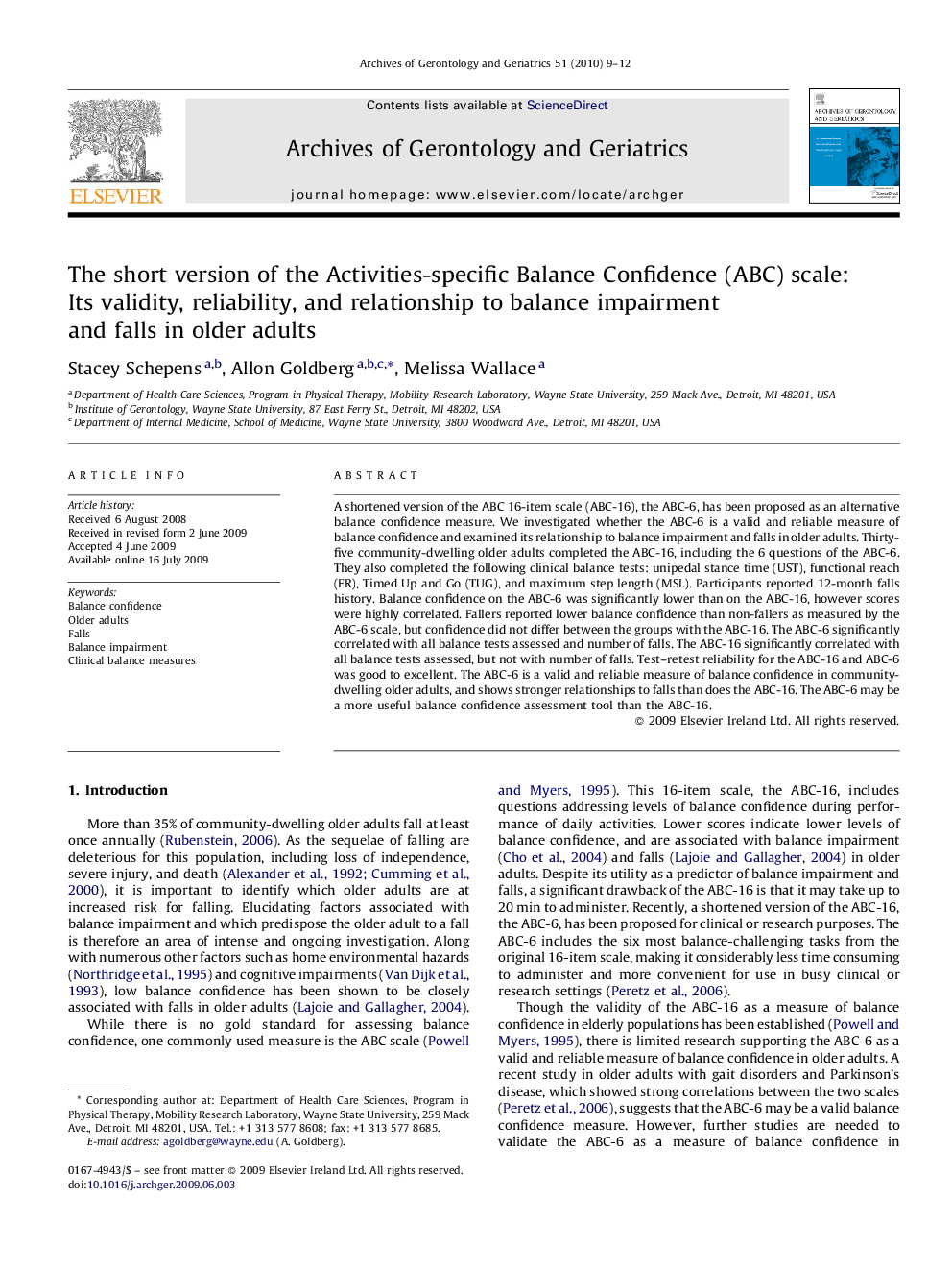| Article ID | Journal | Published Year | Pages | File Type |
|---|---|---|---|---|
| 1903317 | Archives of Gerontology and Geriatrics | 2010 | 4 Pages |
A shortened version of the ABC 16-item scale (ABC-16), the ABC-6, has been proposed as an alternative balance confidence measure. We investigated whether the ABC-6 is a valid and reliable measure of balance confidence and examined its relationship to balance impairment and falls in older adults. Thirty-five community-dwelling older adults completed the ABC-16, including the 6 questions of the ABC-6. They also completed the following clinical balance tests: unipedal stance time (UST), functional reach (FR), Timed Up and Go (TUG), and maximum step length (MSL). Participants reported 12-month falls history. Balance confidence on the ABC-6 was significantly lower than on the ABC-16, however scores were highly correlated. Fallers reported lower balance confidence than non-fallers as measured by the ABC-6 scale, but confidence did not differ between the groups with the ABC-16. The ABC-6 significantly correlated with all balance tests assessed and number of falls. The ABC-16 significantly correlated with all balance tests assessed, but not with number of falls. Test–retest reliability for the ABC-16 and ABC-6 was good to excellent. The ABC-6 is a valid and reliable measure of balance confidence in community-dwelling older adults, and shows stronger relationships to falls than does the ABC-16. The ABC-6 may be a more useful balance confidence assessment tool than the ABC-16.
